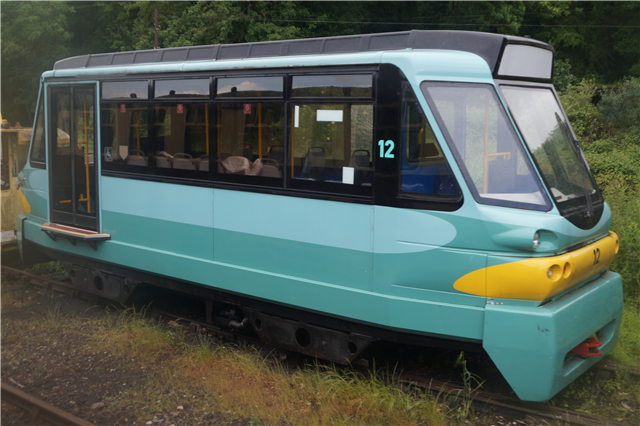Parry People Movers Ltd. (PPM) is a British company manufacturing lightweight trams and railcars that use flywheel energy storage (FES) to store energy for traction, allowing electric systems to operate without overhead wires or third rails, and railcars fuelled by small gas, diesel or hydrogen engines.
PPMs utilise a rotating flywheel as a store of kinetic energy which is then used to power the vehicle. A typical PPM flywheel is made from steel laminates, approximately 1 m (39 in) in diameter and 500 kg (1,100 lb) in mass, designed to rotate at a maximum speed of 2,500 rpm. The flywheel is mounted horizontally at the centre of the unit, beneath the seating area.
The flywheel is driven by an internal combustion engine or an electric motor. The flywheel is connected to the rail wheels via a hydrostatic variable transmission system. The wheels are driven without conversion into electricity as many other railcars utilizing flywheel energy storages do.
The flywheel allows the direct capture of brake energy (when slowing down or descending gradients) and its re-use for acceleration (called regenerative braking). When the vehicle brakes, the hydrostatic transmission feeds the energy back into the flywheel. Since the short-term power demand for acceleration is provided by the energy stored in the flywheel, there is no need for a large engine. A variety of small engine types can be used including LPG, diesel or electric traction.
On a route with stations a short distance apart it is theoretically possible to use the unit as a tram without any engine or overhead electrification at all. Instead the flywheel could be re-energised at each station storing enough power to carry it on to the next.
